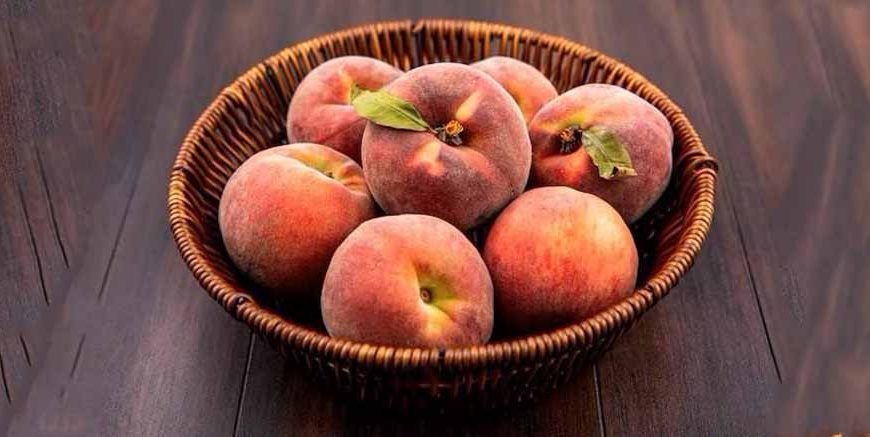As much as it is advised that an infant is fed on mild and soft foods, peaches are good as a weaning food for the baby. Though these red and sweet fruits are delicious to take, they still possess nutrition values that can supplement the need of the growing kid. In the meantime, of this article the health importance of peaches to babies, its nutrient content and few tasty recipes which may likely support babies’ delicious mouth will be discussed.
Table of Contents:
Health Benefits of Peaches:
Peaches offer a wide range of health benefits for babies, making them an excellent addition to their diet:
- Digestive Health: Foods that have fibre are beneficial in the digestion process, as a result since peaches contain fibre it will help in the elimination of constipation, a common disease to babies especially when on the solid foods.
- Immune System Support: Most peaches are found to contain a good quantity of vitamin C, a nutrient with a key role in the immune system of human beings and the body’s ability to ward off diseases.
- Eye Health: The beta-carotene that is present in peaches is citric acid that is transformed into vitamin A into the body which is required for the normal working of the eyes and vision.
- Hydration: Peaches are about 90 percent water, so when you feed your baby with peaches, you do not have to worry of them lacking water especially in very hot weather.
- Antioxidant Properties: They contain a host of antioxidants, which shall assist in preventing further damage of the baby cells by over-activity of the free radicals.
- Skin Health: They contain the vitamins and the minerals that are necessary for formation of skins and these fruits can help us in maintaining the natural skin sheen.
- Brain Development: Among the nutrients found in peaches include choline, which is very vital in the developmental processes of the baby’s brain, and also in the development of the body’s coordination of the growing fetus.
Nutritional Value of Peaches Fruit:
Peaches are a nutritional powerhouse, offering a variety of essential vitamins and minerals that are crucial for your baby’s growth:
- Vitamins: The fruit contains vitamins A, C, E, and K also B group of vitamins such as thiamine, niacin, and riboflavin.
- Minerals: They also have other minerals for instance potassium, calcium, magnesium, phosphorus that are useful in the growth of bones and human development.
- Low in Calories: As it is with the lipids, they contain low energy density, so intake of peaches will not cause immediate weight gain.
- Natural Sugars: They do not contain any other kind of sugar that is abnormal but has a natural kind of sugar which is as a result of fruits, therefore makes peaches the best first fruit for babies.
- Phytonutrients: Peach contains different phytonutrient for instance flavonoids, carotenes assist in preventing or reducing inflammation and assistance in acting as antioxidants.
- Hydration:Peaches are 89% water and thus will aid pass water in the system of the baby as well as the nutrients it is made up of.
Peach Recipes:
Now that we understand the nutritional benefits of peaches, let’s explore some simple and delicious recipes that your baby will love:
- Peach Puree:
- Wash, peel, and pit a ripe peach.
- Cut into small pieces and steam until soft (about 3-5 minutes).
- Blend the steamed peaches until smooth, adding a little water if needed.
- Serve warm or cool to room temperature.
- Peach and Oatmeal Breakfast:
- Prepare baby oatmeal according to package instructions.
- Mix in some peach puree for added flavour and nutrition.
- Sprinkle it with a pinch of cinnamon for extra taste (for babies 8 months and older).
- Peach and Yogurt Smoothie:
- Blend 1/4 cup of peach puree with 1/4 cup of plain, unsweetened yogurt.
- Add a splash of breast milk or formula to achieve desired consistency.
- Perfect for babies 6 months and older who have been introduced to dairy.
- Peach and Chicken Puree:
- Steam and puree equal parts cooked chicken and peaches.
- Mix well for a protein-rich meal suitable for babies 8 months and older.
- Peach Teething Popsicles:
- Pour peach puree into ice cube trays or popsicle moulds.
- Freeze until solid.
- Offer to your teething baby for soothing relief (under supervision).
Peaches for Babies:
So, encouraging your baby to take peaches is very rewarding and can be done in the following steps. Here are some tips to make the process smooth and enjoyable:
- When to Start: Newborns should begin solid foods at 4-6 months of age and most babies will be able to have peaches at this time. Nevertheless, always seek the permission from the paediatrician.
- Choosing the Right Peaches: Choose ripe soft peaches to reduce your inability to digest foods well by your stomach. It is safer to choose organic peaches since that will mean you reduce your intake of pesticides.
- Preparation: You have to always wash the peaches thoroughly in case you are preparing them to feed the baby. For younger infants it is deemed appropriate to skin the fruits, as well as, removing the pit before blending.
- Texture Progression: For the babies, it is especially recommended to begin with the highly processed meals, which are the smooth purees. When your baby starts growing his teeth, and develops chewing ability, then you can start to give him mashed peaches and then small crunchy ones.
- Combining with Other Foods: Peaches go well with other fruits, vegetables as well as grains. Try to mix it with mashed peach or with applesauce, bananas or oatmeal for change as a supplement.
- Allergies: Though peach allergies are uncommon, one should address all the signals of an allergic reaction, especially when introducing the fruit. Try giving a limited portion at first then wait for at least three days to give more.
- Storage: New made puree from peaches can be stored in the refrigerator for up to two days while it can also be stored in the freezer up to a period of three months in proportions that suit. Puree defrosts in the refrigerator and it is advisable to be consumed within one day at most.
- Serving Temperature: Peaches can be served cold – in which they can be refrigerated for a couple of days before serving – or when they are served at room temperature. Do not bake peaches in the microwave oven for this will cause some portions to become extremely hot enough to burn the baby’s mouth.
Thus, peaches are highly recommended for consumption by babies as they are healthy and tasty. Since peaches have a sweet taste and are rich in vitamins, they are perfect for setting the foundation for a stable and healthy diet during childhood. To make sure that your little one gets all the nutrients found in these fuzzy fruits, you can add peaches into your recipes and also practice safe feeding. Position your baby safely and comfortably during the feeding process and make sure you are consistent with introducing new foods.
For more such interesting blogs, Visit EuroKids















